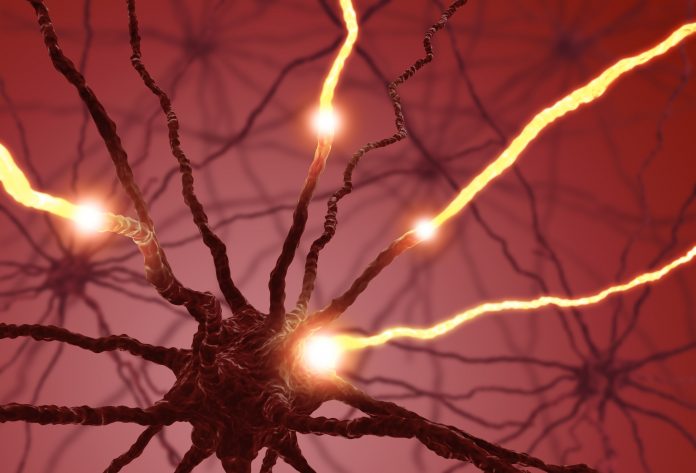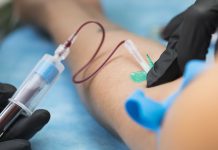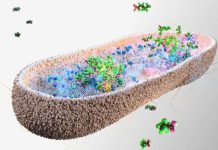Cecilia Van Cauwenberghe from Frost & Sullivan’s TechCasting Group, provides a fresh perspective on predictions concerning Huntington’s disease in a post-pandemic era
An interdisciplinary and interfaculty team of investigators from the Division of Psychological Medicine and Clinical Neurosciences, Brain Repair Group at the Schools of Medicine and Biosciences, and Neuroscience and Mental Health Research Institute of the Cardiff University, UK; the Department of Neurology of the University of Ulm, Germany; and the Swiss Huntington’s Disease Centre, Siloah, Bern, Switzerland, in Western Europe; along with a team of researchers working at the Molecular Neurogenetic Unit, Center for Genomic Medicine, Massachusetts General Hospital; and scientists from the Department of Genetics, Harvard Medical School, Boston, MA, in the U.S. (McAllister et al., 2021), carried out a comprehensive study to evaluate the prevalence, timing, and functional impact of psychiatric, cognitive, and motor abnormalities in Huntington’s disease (HD) gene carriers, by using retrospective clinical data from more than 6,000 patients with diagnosed HD depicting the relationships between specific symptoms and their correlation with functional outcomes.
The data came from an observational study of the European Huntington’s Disease Network (REGISTRY) from 161 sites across 17 countries, and the results focused on a range of particular symptoms: motor, cognitive, apathy, depression, perseverative/obsessive behaviour, irritability, violent/aggressive behaviour, and psychosis. According to the researchers, psychiatric and mental symptoms are functionally debilitating in HD gene carriers. Therefore, their early-stage recognition and targeting are crucial to improving treatment and clinical outcomes.
Major challenges at early stages
The challenge relies on distinguishing between non-motor symptoms arising from HD in combination and primary psychiatric disorders (McCusker and Loy, 2021). In an editorial note published in mid-2021, two investigators from the University of Sydney and the Garvan Institute of Medical Research, Sydney, Australia, emphasised that while motor manifestations of HD cause severe issues, non-motor impairments of behaviour and cognition have the most significant impact in the disease course.
This fact dramatically impacts affect relationships at home and in the workplace. Nevertheless, the exact correlation between these non-motor symptoms and clinical HD onset is uncertain.
Along the same lines, researchers working at the University of Virginia School of Nursing, Charlottesville, VA, U.S., talk about the Theory of Unpleasant Symptoms to refer to the neuropsychiatric symptoms in HD. The authors depict that whereas neuropsychiatric symptoms are frequent and derive significant adverse effects on a patient’s daily activities and social withdrawal, their impact on physical, cognitive, and social functional status is poorly understood (Gibson et al., 2021).
Post-COVID pandemic predictions
Several investigators are also working on the effects of the COVID-19 pandemic and the post-pandemic in non-motor symptoms of HD (Sánchez et al., 2021). According to the authors advocating these analyses, the COVID-19 pandemic represented a unique opportunity to evaluate some technologies, such as telehealth in clinical care. In particular, the adaptation of telemedicine in a HD clinic demonstrated to be successful enough, just registering modest reductions in new patient visits caused by a decrease in referrals.
Telehealth also helped in predictive genetic testing in HD, which helped to enhance specialised care for HD. Nevertheless, more detailed, complete neurological exams or situations that required physical therapy interventions, among others, are still pending on clinic assessments. Indeed, telehealth provided high-quality subspecialty neurological and interdisciplinary care for HD, keeping continuity across treatments beyond any potential barrier to access (Harrison and Morrissey, 2021).
This fact suggests the adequate implementation of hybrid models shortly. According to the authors, this approach to HD care delivery in a hybrid model in the post-pandemic era will probably gain increasing attention (Klasper et al., 2021).
Acknowledgements
I want to thank all contributors from the industry involved with developing and delivering this article from Frost & Sullivan.
Further reading
- Gibson, J.S., Rhoten, B.A., Ridner, S.H. and Claassen, D.O., 2021. Perceived effects of neuropsychiatric symptoms on functional status in early-stage Huntington disease. Western Journal of Nursing Research, p.0193945921992545.
- Harrison, M.B. and Morrissey, D., 2021. Interdisciplinary Telemedicine Services for Huntington’s Disease: A 20-Year Experience. Telemedicine and e-Health, 27(5), pp.583-586.
- Klapper, J., Bardakjian, T., Sigal, I., Muralidharan, K. and Gonzalez-Alegre, P., 2021. Healthcare delivery via telehealth during the COVID-19 pandemic: The experience of a Huntington’s disease clinic. Clinical parkinsonism & related disorders, 4, p.100093.
- McAllister, B., Gusella, J.F., Landwehrmeyer, G.B., Lee, J.M., MacDonald, M.E., Orth, M., Rosser, A.E., Williams, N.M., Holmans, P., Jones, L. and Massey, T.H., 2021. Timing and impact of psychiatric, cognitive, and motor abnormalities in Huntington disease. Neurology, 96(19), pp.e2395-e2406.
- McCusker, E.A. and Loy, C.T., 2021. Prevalent Nonmotor Symptoms Associated With Huntington Disease: Challenging to Interpret and With Early Impact on Function. Neurology, 96(19), pp.875-876.
- Sánchez-García, J.C., Cortés-Martín, J., Rodríguez-Blanque, R., Marín-Jiménez, A.E., Montiel-Troya, M. and Díaz-Rodríguez, L., 2021. Depression and anxiety in patients with rare diseases during the COVID-19 pandemic. International journal of environmental research and public health, 18(6), p.3234.








